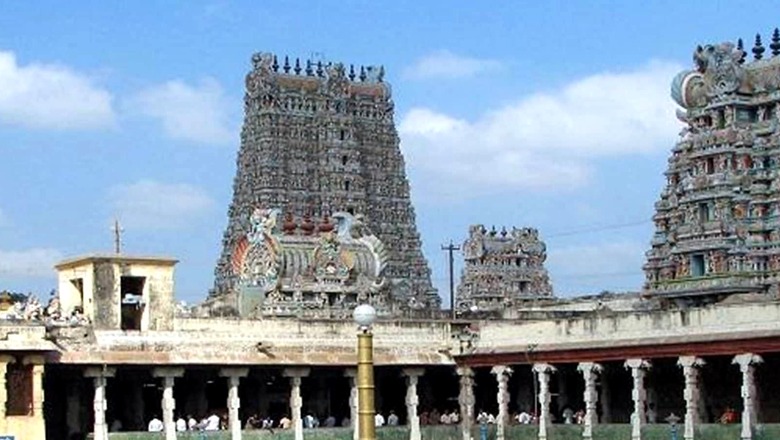
views
When T Marichamy of Madurai, a member of the non-Brahmin community in Tamil Nadu, looks back on the barriers that stalled his priesthood and the legal battle that put the effort in cold storage for over a decade — he rarely dwells on the difficulties.
He glosses over reasons why it was so hard, and why it took 50 years to level out disparities that kept him and others like him at bay. For him, the struggle is not meant to be remembered often. Probed further, he quickly points out that his training and certification at the government-run archaka training school won him the appointment at Ayyapan temple in Tallakulam, Madurai.
After the Supreme Court refused to strike down a state government order allowing people from all castes — with requisite training and qualification — to become priests at Hindu temples, Marichamy took the test and was appointed as the first non-Brahmin to qualify and be appointed as a priest.
That’s how Marichamy would like to view a historic turning point in Tamil Nadu’s selection process to priesthood under the ‘People from all castes can become priests’ scheme, a ‘Kalaignar’ Karunanidhi brainchild that had to wait 50 years to gather momentum.
Former chief minister M Karunanidhi’s government order in 2006 was challenged in court, with the legal battle ensuring that the idea became stagnant. The decision of the apex court, however, to acknowledge the right of all to become priests once again gave impetus to the scheme.
Karunanidhi, a self-professed atheist, wanted people from all castes to be eligible to enter the sanctum sanctorum at temples and perform rituals. His son and chief minister MK Stalin gave the priesthood-for-all scheme a push recently and made more appointments.
Marichamy says on the ground, the social change, engineered by politicians like Karunanidhi, is playing out as expected: “I’m a priest, and what people expect of me is that I do my job. It doesn’t matter where I come from. I see no discrimination anywhere…”
Asked if patrons of the temple, the public and visitors display any acknowledgment of the reform, Marichamy replies: “All they want is a priest with good intentions to do his job… that’s all.”
Another priest, whose journey mirrors Marichamy’s, says there are no inflection points in the curve, and that cultural assimilation of non-Brahmin priests as part of the larger scenario is a slow process. Even after getting the appointment as a priest in a temple administered by the state government, proceedings are not completely rid of caste bias, he tells CNN-News18, on condition of anonymity.
“There is still some reluctance on the part of existing priests to give space to us… in conducting rituals. There are certain timings during important seasons that are still not accessible to us… but still, all said, this is an improvement…” says the priest.
The Dravidian movement has been keen, since its inception, to check the absolute influence of one sub-section in the Hindu religion to dominate proceedings at temples. Through plays, screenwriting and later movies, Dravidian ideologues have consistently rallied the inclusion of all castes in different aspects of temple administration — from management to finance to rituals.
The renewed push for more appointments of priests at government-run temples —accounting for over 45,000, according to the website of Hindu religious and charitable endowments department — is an extension of the DMK’s core tenets.
N Sathiya Moorthy, political analyst and Chennai chief of public policy think tank The Observer’s Foundation, says the question of no representation of priests from backward communities has not been a poll issue, and that if done without caution it may also cause communal tensions. “…this has not been a poll issue in Dravidian Tamil Nadu over the past hundred years. If, for instance, Dalit and backward caste priests are appointed to temples in multi-caste localities, it can create communal tensions and upset the ruling DMK’s politico-electoral calculations more than the social justice that the policy renders…”
As Stalin follows in his father’s footsteps to level the ground in the state’s Hindu religious terrain, it appears as though his vehicle is on a tricky, even though socially rewarding, path towards reform.
Read all the Latest News, Breaking News and Assembly Elections Live Updates here.


















Comments
0 comment